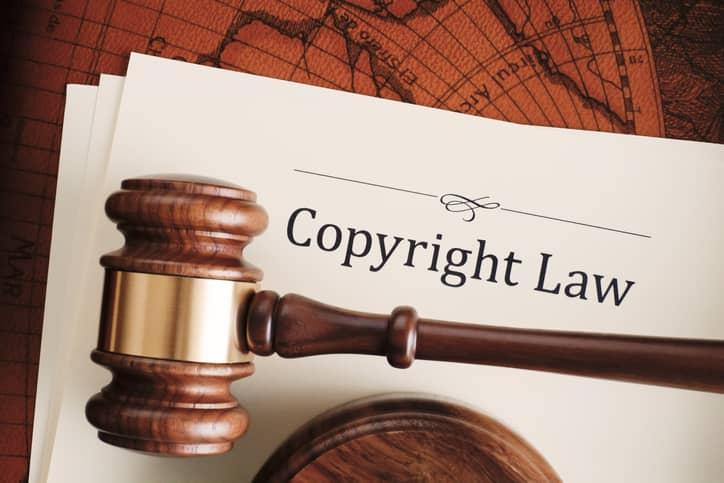In the vibrant and fast-paced world of digital marketing, YouTube stands out as a formidable player, offering businesses an unparalleled platform to connect with audiences through engaging video content. However, as brands rush to capitalize on this dynamic medium, they often find themselves navigating a complex landscape of legal considerations that can substantially impact their marketing strategies. From copyright issues to advertising regulations, understanding the legalities that govern YouTube marketing is essential for anyone looking to harness the power of video in a compliant and effective manner. In this article, we will explore the key legal elements that marketers must be aware of when leveraging YouTube, providing valuable insights that will help ensure their campaigns not only resonate with viewers but also adhere to the legal standards that protect both creators and consumers alike. Join us as we unravel the essential legal frameworks that can make or break a successful digital marketing initiative in the world of YouTube.

Understanding Copyright Laws: Protecting Creative Content in YouTube Marketing
Understanding copyright laws is essential for anyone engaging in YouTube marketing, as it directly impacts the ability to monetize content and protect original creations. The digital landscape is filled with various multimedia resources, making it easy for creators to inadvertently infringe on someone else’s intellectual property rights. To successfully navigate this environment, it’s critical to understand the nuances of copyright, including the concepts of fair use and the public domain. By familiarizing yourself with these principles, you can ensure your marketing strategy respects existing copyrights, while also making informed decisions about using third-party materials.
When developing content, consider the following key points about copyright laws and their implications for your YouTube marketing efforts:
- Originality: Ensure your content is original or properly licensed to avoid infringement claims.
- Attribution: Always give credit to original creators when using their work, even if it falls under fair use.
- Licensing: Investigate royalty-free and Creative Commons licensing options for incorporating external materials.
The table below outlines common copyright terms to help you navigate this complex legal landscape:
| term |
Description |
| Copyright |
Legal protection for original works of authorship. |
| Fair Use |
Limited use of copyrighted material without permission for commentary, criticism, or education. |
| Public Domain |
Works that are free to use without copyright restrictions. |
| Licensing |
Obtaining permission to use someone else’s intellectual property. |

Disclosures and Transparency: Navigating FTC Guidelines for Influencer Collaborations
Understanding the Federal Trade Commission (FTC) guidelines is crucial for creators and brands engaged in influencer marketing on platforms like YouTube. To ensure compliance, influencers must explicitly disclose their relationships with brands to maintain transparency. This helps to cultivate authenticity and trust with their audience. Key practices to adhere to include:
- Clear Language: Use straightforward and unambiguous language such as “Ad” or “Sponsored” in both video content and descriptions.
- Placement: Position disclosures where they are easily noticeable,preferably at the beginning of videos or near the sponsored content.
- Visuals: Utilize on-screen text or graphics for quick identification,ensuring visibility even when the viewer is scrolling through videos.
Moreover, understanding the nuances of these guidelines can definitely help prevent legal complications. The following simple table outlines the critical aspects of disclosures that influencers should keep in mind:
| Disclosure Aspect |
Suggestion |
| Type of Collaboration |
Always disclose monetary or material benefits. |
| Consistency |
Maintain consistent practices across all videos. |
| Audience Understanding |
Use language that your audience will easily comprehend. |

Privacy and Data Protection: Legal Considerations for YouTube Advertisers
in the realm of YouTube marketing, it is crucial for advertisers to understand the legal framework surrounding privacy and data protection. Advertisers must comply with regulations such as the General Data Protection Regulation (GDPR) and the California Consumer Privacy Act (CCPA). These laws mandate transparency regarding data collection practices,requiring advertisers to inform users about the type of data being collected,its purpose,and their rights concerning that data. Moreover, obtaining explicit consent from users before collecting personal facts is not just a best practice but a legal requirement in many jurisdictions.
Additionally, data minimization principles should guide advertisers in their campaigns. Only essential data relevant to the advertising strategy should be collected, reducing the risk of data breaches and maintaining consumer trust. It’s advisable for marketers to implement robust data protection measures, such as encryption and regular access audits, to safeguard sensitive information. To further enhance compliance, consider the following key practices:
- Provide clear privacy policies that are easily accessible.
- Offer options for users to manage their data preferences.
- conduct regular audits of data processing activities.
| Legal Framework |
Key requirements |
| GDPR |
Clear consent, right to access and delete data |
| CCPA |
Disclosure of data collection purposes, right to opt-out |

User-Generated Content: Rights and Responsibilities in Leveraging Audience Contributions
When harnessing audience contributions through user-generated content (UGC), marketers must tread carefully to navigate the complex web of rights and responsibilities associated with its use. Creators should always prioritize obtaining clear permissions from contributors, ensuring a mutual understanding of how their content will be utilized.This can involve outlining specific terms in a user agreement,which can stipulate aspects such as copyright ownership,acceptable uses of the content,and the duration of any licenses granted. Failing to establish these parameters can lead to legal disputes, which not only disrupt marketing campaigns but can also damage brand reputation.
Additionally, marketers should foster an environment of trust and transparency with their audience. Engaging with contributors can turn casual fans into devoted brand advocates, enhancing the overall marketing strategy. To effectively manage this relationship, consider implementing a robust content review process that both credits the original creators and adheres to community guidelines. Here are essential elements to keep in mind:
- Attribution: always give credit to the original creator.
- Compliance: Ensure content meets legal standards and community guidelines.
- Respect Privacy: Protect the personal information of contributors.
| Obligation | Action |
| Obtain Permission | Contact creators for explicit use rights |
| Provide Credit | Tag and mention original content creators |
| Maintain Guidelines | Adhere to established content rules |
To Conclude
As we navigate the intricate landscape of YouTube marketing, it becomes clear that understanding the legalities involved is not just beneficial—it’s essential.By acknowledging copyright laws, respecting the guidelines set forth by the platform, and maintaining transparency with your audience, you can cultivate a trustworthy and compliant brand presence.
In a digital age where content is continually evolving,staying informed about the legal implications of your marketing strategies will not only safeguard your efforts but also enhance your credibility. Remember,the laws governing online spaces are continually changing,making it crucial for creators and marketers alike to keep abreast of new developments.
As you embark on your YouTube journey, let these principles illuminate your path, ensuring that your creative expression thrives within the bounds of legality. By doing so, you won’t just navigate the law; you’ll master it, transforming potential pitfalls into stepping stones for success. Happy creating!




